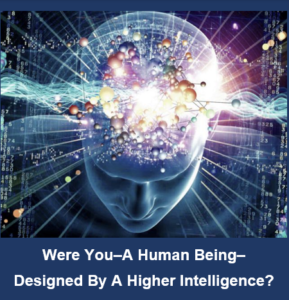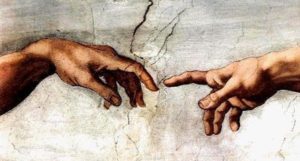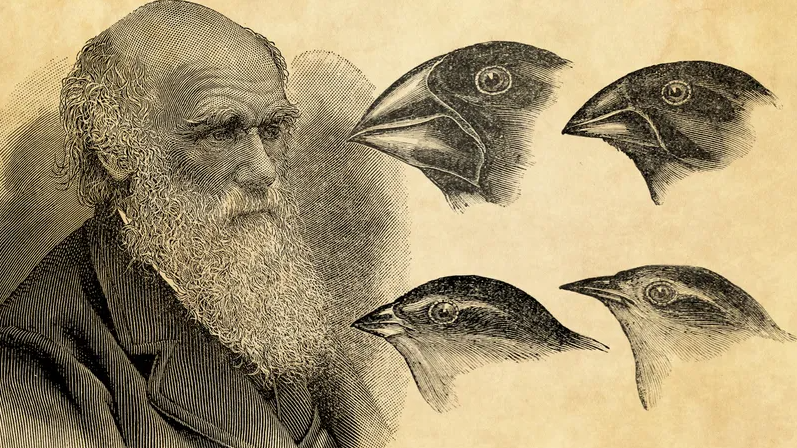 I never came away from an autopsy without a scientific, and somewhat spiritual, reflection on the human body’s phenomenal design. I don’t know how many autopsies I attended over the years as a cop and a coroner. Lots. It’s not something you score. But I always looked at postmortems as a scientific—almost spiritual—systematic exercise in examining the intelligence behind human design.
I never came away from an autopsy without a scientific, and somewhat spiritual, reflection on the human body’s phenomenal design. I don’t know how many autopsies I attended over the years as a cop and a coroner. Lots. It’s not something you score. But I always looked at postmortems as a scientific—almost spiritual—systematic exercise in examining the intelligence behind human design.
There are twelve major systems in your anatomy—all interlinked to ensure your survival. Remove any system (except your reproductive one) and you’ll die. And these systems go about their intermingling business—day after day—year after year—without you having to consciously think about operating them.
Think about it.
All that’s required to live is fuel plus a bit of maintenance and, when things go wrong, modern medical science usually knows how to patch you up. Today’s practitioners can replace your organs, your limbs and joints, your hair, your eyes, your nose, and your teeth.
But what modern science and medicine doesn’t know is how all this came to be. What force of nature—call it a higher intelligence or infinite intelligence—laid the laws that result in you, a conscious human being, to exist and function?
 I recently read a riveting paper written by William A. Dembski, of the Access Research Network titled Intelligent Design as a Theory of Information. The intelligent design, or ID, idea has been around since the ancient Greeks, who did some deep thinking about where they came from and where they were going.
I recently read a riveting paper written by William A. Dembski, of the Access Research Network titled Intelligent Design as a Theory of Information. The intelligent design, or ID, idea has been around since the ancient Greeks, who did some deep thinking about where they came from and where they were going.
Some of intelligent design was explained by mythology, some by theology, and some by analogy. But the central question—did some intelligent being or force intentionally design you—remains unanswered today. Or did you just randomly happen through eons of evolution?
Personally, I believe there’s a unified source of infinite intelligence—a first cause—that guides evolution. A force we’re not capable of truly understanding, comprehending, or explaining. But still, a force that allowed our design and encouraged it.
Design theory—also called design or the design argument—is the view that nature’s entirety shows tangible signs of being designed by a pre-existing intelligence.
The most famous version of the design argument is found in the work of theologian William Paley who, in 1802, proposed his watchmaker analogy. His reasoning went like this:
 In crossing a heath, suppose I pitched my foot against a stone, and were asked how the stone came to be there; I might possibly answer, that, for anything I knew to the contrary, it had lain there forever. … But suppose I had found a watch upon the ground, and it should be inquired how the watch happened to be in that place; I should hardly think the answer which I had before given would be sufficient.
In crossing a heath, suppose I pitched my foot against a stone, and were asked how the stone came to be there; I might possibly answer, that, for anything I knew to the contrary, it had lain there forever. … But suppose I had found a watch upon the ground, and it should be inquired how the watch happened to be in that place; I should hardly think the answer which I had before given would be sufficient.
To the contrary, the fine coordination of all the watch parts would force us to conclude that it must have had a maker—that there must have existed, at some time, and at some place or other, an artificer or artificers, who formed it for some purpose. We’d struggle to comprehend its construction and designed its use, just as we’ve struggled to understand ourselves.
Paley argued we can draw the same conclusion about many anatomical objects, such as the eye. Just as a watch’s parts are all perfectly adapted for the purpose of telling time, the parts of an eye are all perfectly adapted for the purpose of seeing and relaying information to the brain that processes it and relays it back for the body’s welfare. In each case, Paley argued, we discern the marks of an intelligent designer.
 Although Paley’s basic notion was sound and influenced thinkers for decades, Paley never provided a rigorous standard for detecting design in nature. Detecting design depended on such vague standards as being able to discern an object’s “purpose.” Moreover, Paley and other “natural theologians” tried to reason from the facts of nature to the existence of a wise and benevolent God. They tried to prove God from the perception of perfect products.
Although Paley’s basic notion was sound and influenced thinkers for decades, Paley never provided a rigorous standard for detecting design in nature. Detecting design depended on such vague standards as being able to discern an object’s “purpose.” Moreover, Paley and other “natural theologians” tried to reason from the facts of nature to the existence of a wise and benevolent God. They tried to prove God from the perception of perfect products.
All of these things made design an easy target for Charles Darwin when he proposed his theory of evolution.
Whereas Paley saw a finely-balanced world attesting to a kind and just God, Darwin pointed to nature’s imperfections and brutishness. Although Darwin had once been an admirer of Paley, Darwin’s own observations and experiences—especially the cruel, lingering death of his 9-year-old daughter Annie in 1850—that destroyed whatever belief he had in a just and moral universe.
Following Darwin’s widely accepted theory of evolution, the notion of design was all but banished from biology.
Since the 1980s, however, advances in biology have convinced a new generation of scholars that Darwin’s theory was inadequate to account for the sheer complexity of living things. These scholars—chemists, biologists, mathematicians, and philosophers of science—began to reconsider design theory. They formulated a new view of design that avoids the pitfalls of previous versions.
Called intelligent design (ID), to distinguish it from earlier versions of design theory (as well as from the naturalistic use of the term design), this new approach is more modest than its predecessors. Rather than trying to infer God’s existence or character from the natural world, it simply claims that “intelligent causes are necessary to explain the complex, information-rich structures of biology and that these causes are empirically detectable.”
Like I said, I never came away from an autopsy without a scientific, and somewhat spiritual, reflection on the human body’s phenomenal design.
What do you think?
Were you—a human being—designed by a higher intelligence?
Or did you just randomly happen?


This was an excellent article. Thank you for sharing it. Definitely thought provoking and still today there is no definitive answer.
PS. I enjoy your column.
Why thank you for your nice comment, Frances. I truly appreciate the feedback.
Absolutely designed by higher intelligence. As someone who studies ecosystems and the delicate, interconnectivity of the Natural World — humans being members of that world — I live in constant awe. Native Americans have a saying, “As above, so below.” Meaning, all things are connected. What we do every minute of every day cause ripples in the web of life. Some of us tear the web apart, but I won’t jump on that soapbox here. 😉 I also find it amazing how for every ailment there’s an herb to treat it. If that’s not the design of a higher intelligence, I don’t know what is.
Thanks for a fascinating discussion, Garry!
Good morning, dear friend. I haven’t heard the saying, “As above, so below” but I am familiar with the NA saying “all my relations” which commonly follows a statement made in the potlatch and sweat lodge culture. I don’t know if you read a treatise I wrote a few years back titled “Interconnect”. It’s about finding your place in life and comes to the conclusion there are two primary forces at work governing our lives – one being consciousness and the other being entropy. I leave it to the reader to conclude if those are the hands of God.
Love this guy’s writing So intelligent Lill
Thanks, Lill. I try to find subjects I’m interested in, research them, and sort of write to myself and make sense of it.
At one point I had a very well reasoned rebuttal to the intelligent design idea. I think it’s lazy, ultimately. But since it is also impossibly to ever really know, it’s also lazy to dismiss out of hand.
Off the cuff, here is my rationale. First, the errors in “design”. Cancer, the ugly little toe, vestigial organs and traits, and similar items. Granted some things we do not always understand, like the appendix. But what design purpose do the worst human traits serve? My second point starts with the argument that we – life and everything- are so well suited to our universe because someone designed it that way. But it seems more likely that the universe is what it is and we have developed – evolution – to most efficiently exist in those conditions.
If the preset conditions of the universe were orchestrated by an “intelligence”, and we developed to be ideally suited to those conditions, it is pretty much indistinguishable from evolving along the same path without the intelligence. It comes down to what makes life easier and have more meaning for you. For a lot of people, belief in a higher power is beneficial. For some, it is not.
And this is the lazy part. If you believe in the higher power; just say it. Don’t cop out and prove it by claiming science and everything proves it. Own it and move on, let’s work together from the facts of the world around us. I don’t care if anyone believes in the higher power not, but let’s agree on how the world around us behaves.
JW – I read your comment three times and got something more from it on each go. Thanks! I love your own-it approach to daily life which, often, we badly behave in, yet still are progressively productive. I’m gonna throw something out here. A spontaneous idea. Supposing there is a “God” – a first cause of this universe we’re in and a creator of all things past, present, and future – ie evolution. Using logic, then something would have to have created God – maybe a God Father who knows juveniles make mistakes and, that to learn and mature, little God must repeatedly F-up as he/she/it tries to build out the universe assignment. Now Grandfather God and the Great Grandfathers God – man, they must have been wise and had foresight.
I like it. Let’s turn it on its head once again, shall we? As a parent, my “foresight” is that I want my kids to learn from my mistakes, so they (hopefully) don’t repeat them. If each generation learns from the past and (hopefully) builds knowledge of their own and passes that down…ever improving our work, what proud great grandparents will we be indeed!
This whole essay opens up a whole new port? “The order of GOD”
This question has tortured philophers for ever.
It is route that is so complex, that I sometimes do not dare to brouch.
Guy, I think most philosophers have got far more wrong than right 🙂
Yes certainly, a leap in logic, but by GODs’ gift of intelligence he has given the opportunity and right to
question , explore and finally admit, admire, and exhalt to beauty, and wonders of the whole of our being, the universe and life. As said before it is an act of faith accentunated by the awe of our intelligence to accept that there is no alternative, but power and glory of an ifinte being,GOD.
Thankyou again for your thought provoking essays.
Maybe an intelligent designer, but if so, that only opens up a bigger question. Where did the intelligent designer come from? Was the designer designed by something else or was the designer always there? How is that explained? Just like the universe having no end—how can that be? And if it does have an end—well, that implies a “wall” or something that defines the end, and if that exists, what’s on the other side?
On the flip side, it should be remembered that there were a lot of mistakes along the way to where we are today (and mistakes today, too, for that matter). The intelligent designer didn’t do so well with dinosaurs, for example. Even if a meteor hadn’t knocked out a lot of them, they were way too big for the planet to support them forever. And wouldn’t the intelligent designer have been responsible for the meteor—maybe as a way to erase the slate and start over? Which, of course, implies the intelligent designer can make mistakes and recognize those mistakes. So, an imperfect god (for lack of a better term) then?
Everything in the universe COULD be an accident, and if things hadn’t worked out the way they did, we wouldn’t be sitting at our keyboards theorizing about it. The fact that we are doesn’t prove we were intentional. And mistakes along the way don’t prove we weren’t.
Ah, the kind of questions that can drive a person to a beer or three! 🙂
Excellent, excellent points, Laurel. I’d love to have a beer or three with you to do a deep dive on this 😉 I like a quote from Albert Einstein about the big bang theory that went something like this: “I have no problem believing that all matter and energy in the universe was once condensed to an infinitesimally small, dense, and hot point that exploded into what we see today. But God knows where that came from.” And my dad often said, “Maybe all this is just some alien school kid’s science project.” Thanks for helping to provoke thoughts!
Garry, love this post!
For me, I can’t look at an eagle in flight, a praying mantis stalking a honey bee on my plant, our smarter-than-us German Shepherd contemplating my face through her soft brown eyes, a new grandchild looking the spittin’ image of her momma, and a host of other beings on planet earth without knowing somewhere in my mind and heart that ID is not a theory-it’s a fact.
I don’t understand why it’s so hard for some to accept…maybe ego?
Human beings are part of something bigger than we are. And that’s just plain cool!
I wonder, Deb, if non-believers of a grand designer are maybe afraid of it. On a side note, I read a scientific paper about an ant colony in Europe that spans 1,400 kilometers with tens-of-thousands of interconnected hills. Experiments proved that if you seriously disturbed a hill on one end (ie – tried to destroy it) immediately all ant hills along the 1,400 km line went into an alarmed state of defense.
Just wow! 🙂
As someone who vacillates between belief and great doubt, I can assure you it is not ego nor is it a fear of a higher power (AKA God.) I have had doubts since I was a small child and I’m now 69. Believe me, I want that sort of faith and belief, and I work on it; I even pray for it, every single day.
I’ve never been an atheist and the older I get the more open I am to there being a higher power behind creation. The Creator is a term many indigenous people use rather than God. Whatever the term, I don’t think its existence can be solidly proven nor completely discounted. Me – I’m just happy to be here. Thanks for your comment, Lynn – always appreciate your support!
I guess the “ego” comment came from listening to others yakkety-yak on and on, trying to sound intelligent while destroying precious life on earth. I didn’t mean to hammer on folks who are just living their lives the best way they know how…which is most, I think.
I read somewhere that as we get older, faith is easier. So NOT so! When I was young, God was sort of my back-up to my plan. I was invincible. I could do anything and succeed.
I know better now. Which makes faith something I have to fight and pray for every day, too.
I’d say it takes faith to keep having faith, Deb. I’m a disciple of the Napoleon Hill philosophy and “Applied Faith” is one of the seventeen core principles.
I couldn’t agree more, Deb!
I always enjoy your well-researched and thoughtful essays, Garry!
There is no doubt in my mind that we’re “designed” or created by an intelligence beyond our own current comprehension. I’ve only been to one autopsy myself, but I agree, the human body is an amazing thing even after death. And the way our planets many ecosystems are out together can’t be an “accident “ either.
I once attended a lecture given by Commander Chris Hadfield, our Canadian astronaut who commanded the ISS for a time. He said no one could do that and see space without believing in intelligent design as well.
I know I existed somewhere before I drew breath on my birthday and I’m sure I’ll exist somewhere again when I draw my last breath in my body. Till then, I’m grateful for every day in between.
As a coroner, one of my main roles was to deal with the deceased’s family. Often I’d get asked of my views about life after death and I formulated my response as, “I believe you were somewhere before you were physically born and I think you go back to the same place after you physically die so there’s nothing to be afraid of.” Thanks for your thoughtful comment, Laurie, and I’m envious that you heard Chris Hadfield speak.
Designed by a higher intelligence, influenced by random happenings and shaped by my own choices.
Today’s post lives up to your “thought provoking” intention.
“Designed by a higher intelligence, influenced by random happenings and shaped by my own choices.” Well put, Barbara. Well put.
For myself, I was thought, as GOD, being supreme beyond our ability to understand, the maker and contol of the moon, the stars and the sun. of the air we breath, of all insects, animalas that we see, the food we eat, our birth and our death. Abolute master. It was and still is an act of faith. I don’t worry of any alternaive and various views. Alternative intelligence? Creating beings? Controlling weather. There is an assembly world wide, of leaders who believe that they can replace and or control the forces of nature. Reproction, nature and climate. In othe words, repacing GOD.
Such ideology will lead to our self destruction. By the order of again of ALMIGHTY GOD
Thank you Garry for offerring some critical thoughts and common sense ideas, contrary to common views offered today.
Thank you, Guy, for being so supportive over the years. And over the years, I’ve been much more comfortable of believing in God’s existence and supremacy in the universe. As you say, it’s an act of faith but I think it’s also a leap of logic.
“Act of Faith, Leap of Logic”…I really like that!